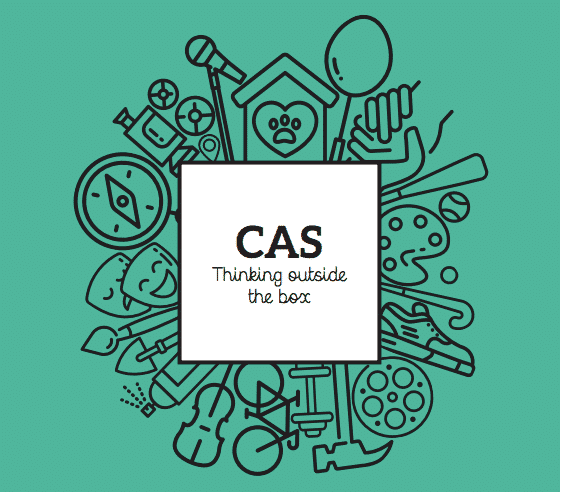CAS Reflections
If you checked out last week’s blog on 100 CAS ideas, then you should be well on the way for having some exciting, unique and fun experiences with CAS! But guess what – the fun doesn’t stop there. As an IB Diploma student you are expected to reflect on your CAS projects and experiences. But what exactly are CAS reflections, I hear you ask? Read on for the ultimate guide to producing CAS reflections…
What is a CAS reflection?
Over your 18 months of CAS, you’ll be expected to produce reflections. These are thoughtful, honest accounts of what you’ve gained by completing CAS experiences. A big part of CAS is how your experiences and projects lead to personal development. The IBO states that students should “identify goals, develop strategies and determine further actions for personal growth”. So, analysing your goals, decisions, successes, problems, and ways of overcoming challenges are a few suggestions of what should be included in CAS reflections. Here are the IBO’s top things to consider when producing your reflections:
- Describe what happened: retell memorable moments, identifying what was important or influential, what went well or was difficult, obstacles and successes.
- Express feelings: articulate emotional responses to your experiences.
- Generate ideas: rethink or re-examine choices and actions, as this increases awareness about self and situations.
- Ask questions: question processes or issues to prompt further thinking and ongoing inquiry
Other good questions to consider when producing your reflections include:
- Why did I make this particular choice?
- How did this experience reflect my personal ideas and values?
- In what ways am I being challenged to think differently about myself and others?
- How did I feel about the challenges?
- What happened that prompted particular feelings?
- What choices might have resulted in different feelings and outcomes?
Recording Reflections
I found having a CAS diary incredibly useful. After completing a CAS experience or part of a CAS project, I would write down the date, activity and a few thoughts about what I did and how I had found things. I sometimes used the seven learning outcomes (see below!) as guidance for what to write. By making notes (however brief!) in my CAS diary, this then made my life much easier when it came to producing my detailed reflections. It can really save you time in the long run! But a good thing to remember is that purposeful reflection is about quality, not quantity. You are not expected to write detailed reflections after every single one of your CAS experiences (thank goodness!). Rather, you should simply identify moments worthy of reflection, such as:
- When a moment of discovery is happening
- When a skill is mastered
- When a challenge is confronted
- When emotions are provoked
- When achievement deserves celebration
Methods of Reflection
Whilst most of my CAS reflections were written paragraphs, this doesn’t have to be the case. Find forms of expression that suit you and your various CAS experiences. Other methods of reflection could include:
- a dialogue
- a poem
- a song
- a comic strip
- a dramatic performance
- a letter
- a photograph
- a video diary
- a dance
So, if you’re not a fan of writing down your thoughts and feelings, use another creative method to make the process easier and more natural!
CAS Portfolio
Your reflections make up what’s known as your CAS portfolio; this is your evidence of engagement with CAS. It not only includes your reflections, but you can also include images, posters, videos etc. In addition, your portfolio should include evidence of achievement of each of the seven learning outcomes. These are:
- Identify own strengths and develop areas for growth – analyse your abilities, skills and weaknesses
- Demonstrate that challenges have been undertaken, developing new skills in the process – this could be taking on a new experience or an existing one
- Demonstrate how to initiate and plan a CAS experience – describe the stages from conceiving an idea to executing a plan for an individual or collaborative CAS experiences
- Show commitment to, and perseverance in, CAS experiences – demonstrate regular involvement in CAS activities, and show how you work around or overcome challenges
- Demonstrate the skills and recognize the benefits of working collaboratively – critically discuss the benefits and challenges of working with others
- Demonstrate engagement with issues of global significance – show an understanding of global issues, make responsible decisions and take appropriate action in response to the issue either locally, nationally or internationally
- Recognize and consider the ethics of choices and actions – show awareness of the consequences of choices and actions in planning and carrying out your CAS experiences
Some of these learning outcomes may be achieved multiple times, while others may be achieved less frequently. But you must provide evidence of having achieved each learning outcome at least once through your CAS journey. Read more about each outcome, HERE.
Whilst your CAS portfolio is not formally assessed, it is a crucial part of your IB Diploma. Remember, if you don’t pass CAS, you won’t achieve your Diploma. And that would be very sad after all of your hard work!
Recap
I hope this week’s blog will make your life easier when it comes to producing your CAS reflections. For me, a key takeaway is quality over quantity. Purposeful reflection is not about constant reflection after every single one of your CAS experiences, but rather identifying important moments for reflection. Remember, CAS is not meant to be a burden, and neither are your reflections! If you’re not a fan of writing out your reflections, and you’d rather create fun and interactive video diaries, go for it! Think of ways to make the reflective process much more enjoyable!
If you’re looking for additional support to manage your workload while balancing the demands of CAS, Lanterna’s IB Tutoring services could help you stay on top of your studies and make the most of your IB Diploma journey.
Read Part 4 Here: The CAS Project


